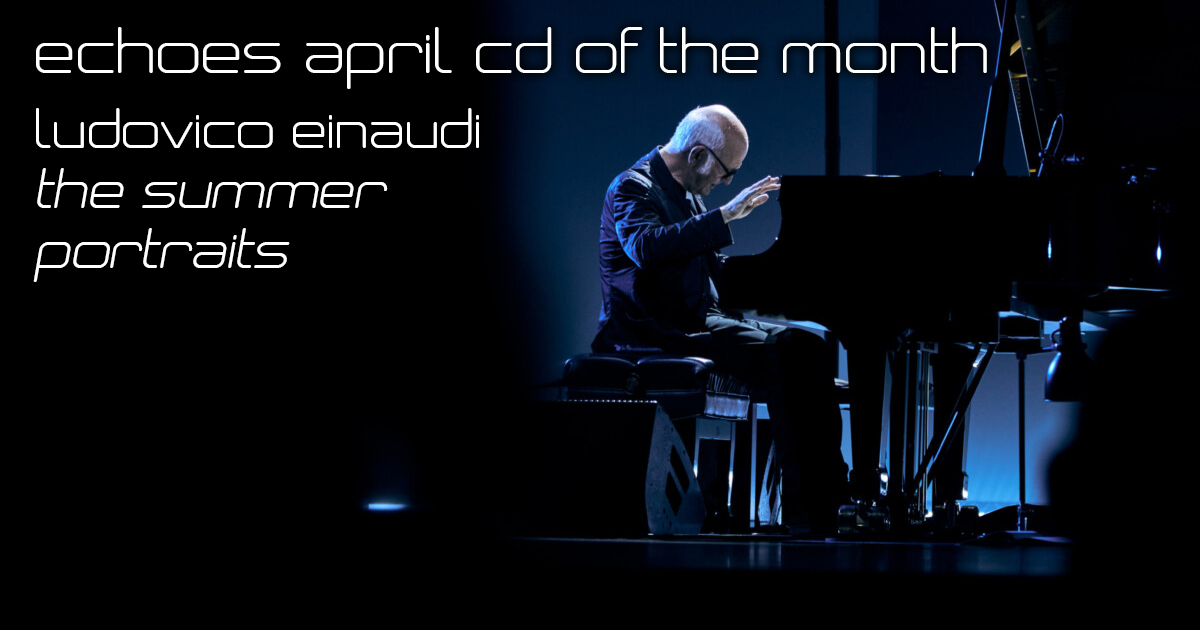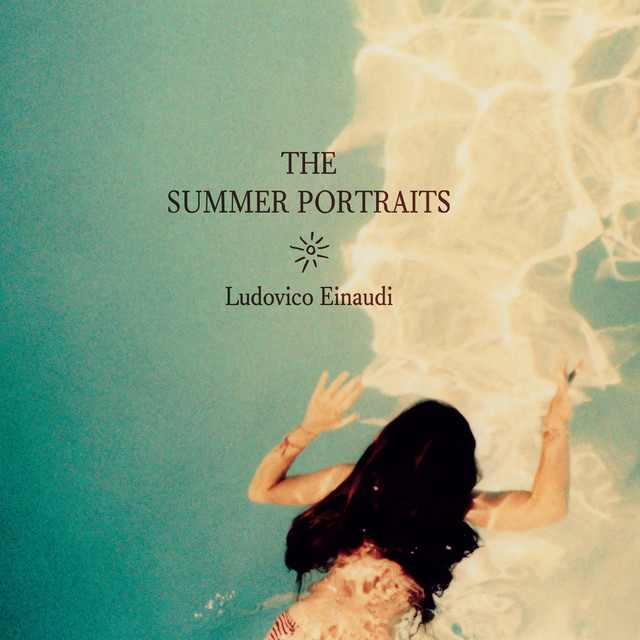The Music of Memories-Ludovico Einaudi's The Summer Portraits, Echoes April CD of the Month
by John Diliberto
03-30-2025

Major labels have jumped full bore into the ambient chamber music frontier although they may market it as neo-classical, new classical or post-classical. Artists like Max Richter, Olafur Arnalds and Peter Gregson have found homes at Sony, Decca and other label imprints. While critics have extolled this music, I rarely see Ludovico Einaudi mentioned in this context. It could be because of his overwhelming sense of melody and melancholy, the fact audiences listen to his music at a reputed rate of 9 million streams a year, or, unlike most the audiences for these artists, Einaudi’s audience is overwhelmingly populated by women.
The Summer Portraits is one of Ludovico Einaudi’s more wistful recordings in his catalog, which spans 37 years and 17 studio albums. A former student of avant-garde composer, Luciano Berio, he’s a pioneer of Ambient Chamber Music, mixing electronics with his piano and other orchestrations. His new album, The Summer Portraits, doesn’t have the dynamic verve of early releases like Divenire, nor the austere, almost painfully naked expanses of his more recent albums, like his quartet performances on the seven-volume, Seven Days Walking, nor his solo piano outings, 12 Songs from Home and Underwater. But it does have the elegantly textured sound of his 2013 release, In a Time Lapse, an Echoes CD of the Month.
 The Summer Portraits, like many Einaudi releases, is inspired by memories and personal reactions, often drawn from nature. In this case he cites his family and his childhood home in Torino, to which he recently relocated.
The Summer Portraits, like many Einaudi releases, is inspired by memories and personal reactions, often drawn from nature. In this case he cites his family and his childhood home in Torino, to which he recently relocated.
Tracks like “Sequence” draw upon Chopin, but walks it though subtle shifts, and dusty bas reliefs of melody, with counterpoint strings.
Einaudi’s music is emotional without ever descending into simple sentimentality. His penchant for beautiful, silk-wrapped melodies are what might keep him out of the conversation with more abstract artists like Nils Frahm or Olafur Arnalds. It’s melodic without hitting you over the head.
“Punta Bianca” is typical of most Einaudi pieces. It begins in quiet, a low and slow simple melody that slowly expands, increases in dynamics, is wrapped in other instruments, in this case cello and violin, tuned percussion, the subtlest of electronics and a barely-there choir chanting a one note mantra. It builds to a peak and then dissolves.
“Pathos,” on the other hand, is one of the most robust tracks on the album, alternating between gently-swooning melodies and a buzzing storm of strings from the Royal Philharmonic Orchestra Strings.
Einaudi lives in the minor keys but he moves out of them often, including the track, “In Memory of a Dream.” This is another one with the Royal Philharmonic Orchestra Strings and it slowly rises out of an early slumber into a cinematic journey that could underscore Rose and Jack on the bow of the Titanic. It does hit on the romantic side of Einaudi’s music, which is usually an undercurrent, not the main theme.
“In Limine” is one of the more overtly electronic pieces on the album, but in this case, “overt” is like a whisper of backward effects, as strings shadow tremulously in the background of Einaudi’s spare, muted-piano melody, a haunting, pensive refrain. “In Limine” means “on the threshold” and you feel suspended in pensive space.
The album ends on what starts as a minor key downer, “Santiago.” A spare 5-note piano motif slowly builds, joined by tuned percussion. As the piece evolves, cello, that backwards ambient effect, and pizzicato violin fall in step. Like a summer memory, it all seems to quickly vanish in a haze.
The Summer Portraits leaves you in a quiet space of contemplation. Ludovico has his own memories of Summer but you can make your own with The Summer Portraits.
